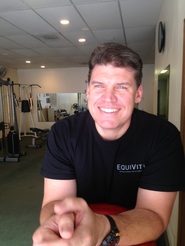
It has been a rough day and all you want to do is go home, get food and curl up in front of the television, but your program has you scheduled to workout. How many times have you found yourself in this scenario? This point of deciding whether you stick to your plan or change it is a challenge and all the harder if you actually consider it to be a decision point.
Here's the thing, it is not a time for decision because the decision has already been made. When you set the goal you made the decision and the only way to achieve the goal is to follow through.
Fitness goals are only realized through consistency.
At a recent Fit U we discussed goal setting and goal attaining as if they were separate roles and, for discussion purposes, imagined that these roles were played by different individuals. The goal setting is performed by the role of manager, parent or master and the employee, child or padawan is responsible for completing the steps that will lead toward the goal. When you are in the "manager" role you are able to set long-term goals as well as determine the path to achieve those goals. The "employee" role is to complete the tasks as outlined by the manager.
If consistency is necessary, then achieving your goals is about following your to-do list. The more clear and concrete that the "master" makes the to-do list, the easier it will be for that list to be followed. The list cannot be seen as a suggestion or something that can be modified by the "padawan" because the padawan role is about the short term. The secret to goal realization is placing a higher value on the long term than the short term, but if you are in the role where you are unable to see long-term then your decision making won't include the big picture.
That is why when you are in the doer role you can't allow yourself to usurp the decisions that you made as the planner. And as the planner the more you clearly you can envision what you want, objectively assess how well you are doing and realistically provide the next steps the easier it will be for the doer to stay on track.
Whether you find it helpful to think in terms of these two different roles or not, setting aside time for the sole purpose of planning can help you to gain clearer understanding of how your actions fit what you want. If they don't fit, then something needs to change because setting unrealistic goals is setting yourself up for failure and a lot of unnecessary stress - stress that will work against you whatever your goals happen to be.
As always, let me know how I can help.
Adam

 RSS Feed
RSS Feed
